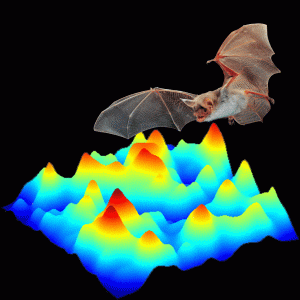Neuroethology of bat navigation
Yossi Yovel1,2
1Faculty of Life sciences, Department of Zoology and 2Sagol School of Neuroscience, Tel Aviv University, Israel
Bats are extreme aviators and amazing navigators. Many bat species nightly commute dozens of kilometres in search of food, and some bat species annually migrate over thousands of kilometres. Studying bats in their natural environment has always been extremely challenging because of their small size (mostly <50 g) and agile nature. In the past four years, we have developed novel miniature technology to GPS-tag small bats, thus opening a new window to document their behaviour in the wild. However, the movement of an animal alone is not sufficient for studying its decision processes. We therefore equipped our miniature GPS devices with an ultrasonic microphone which allows monitoring of the sonar and social communication of freely behaving bats. Because echolocating bats rely on sound emission to perceive their environment, on-board recordings enable us to tap into their sensory ‘point of view’ and to monitor fundamental aspects of their behaviour such as attacks on prey and interactions with conspecifics. This intimate description of behaviour allows us to examine bat decision-making under natural conditions. I will present several projects that examine how bats combine sensory information with social information when making navigation decisions. Finally, I will present our current effort to include more on-board sensors for the study of bat neuro-ecology including acceleration, EEG and physiology sensors.









You must be logged in to post a comment.